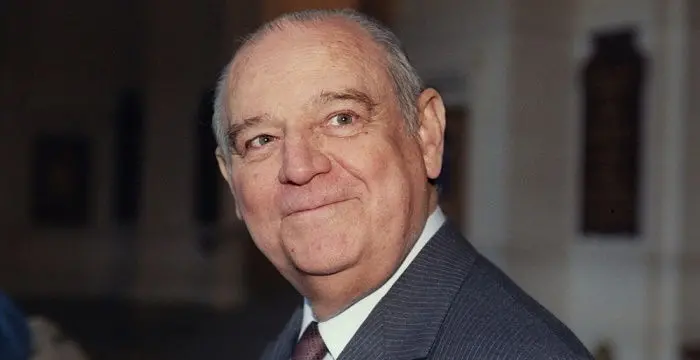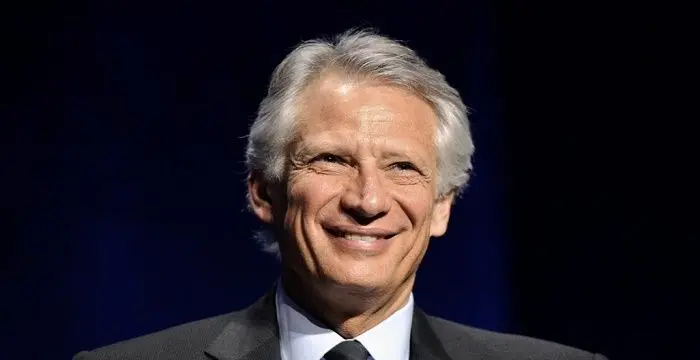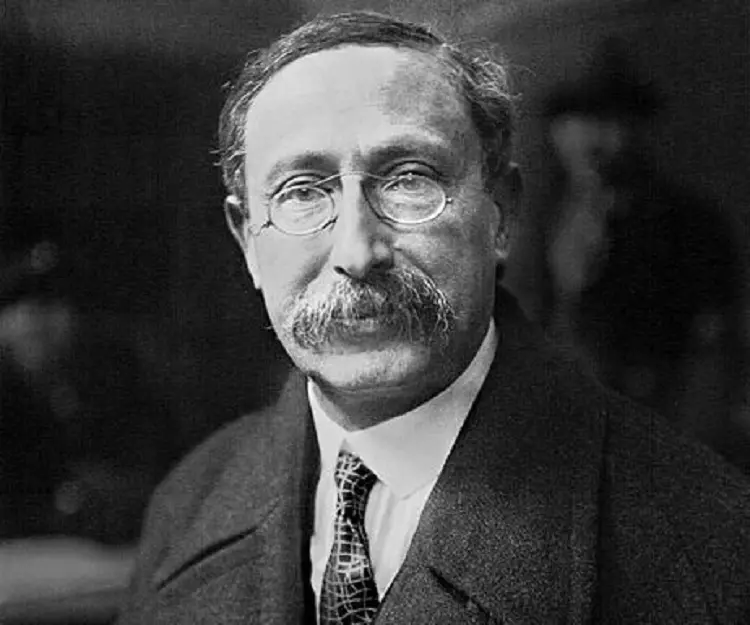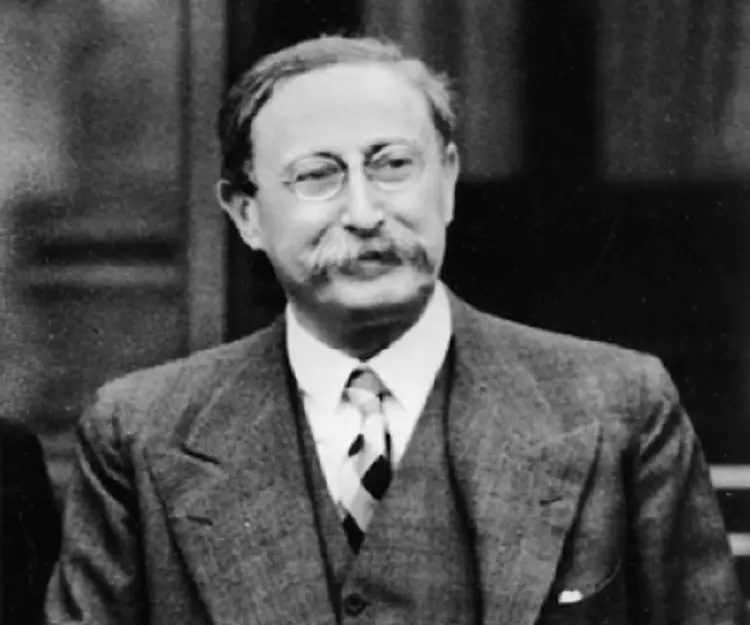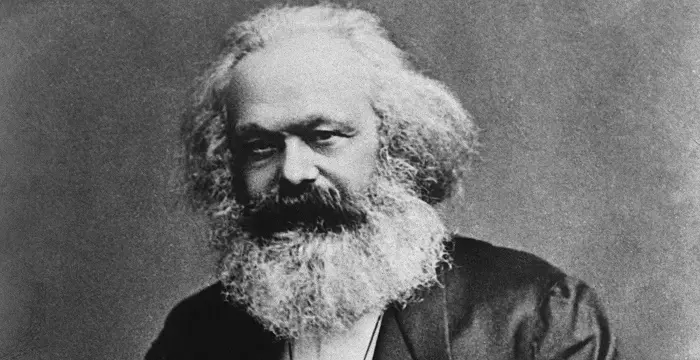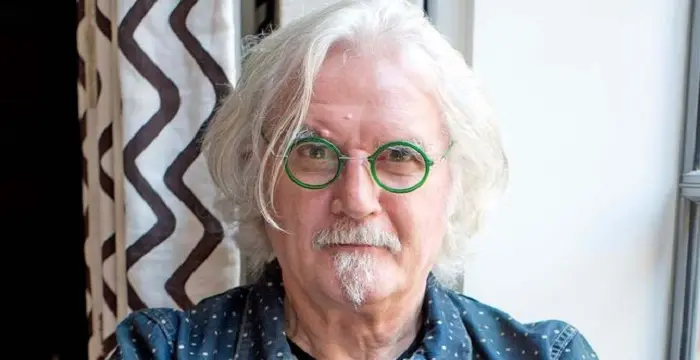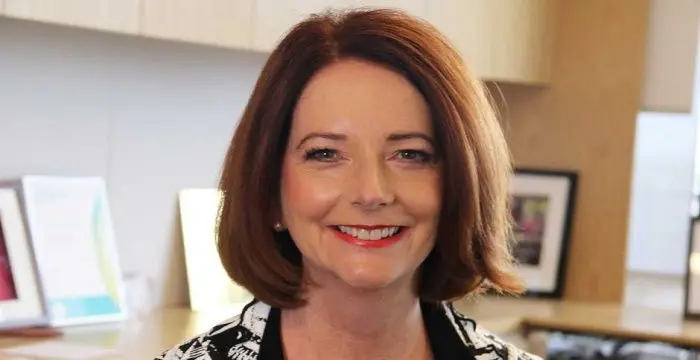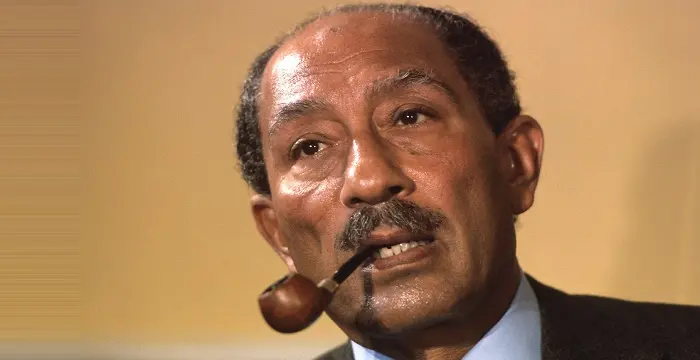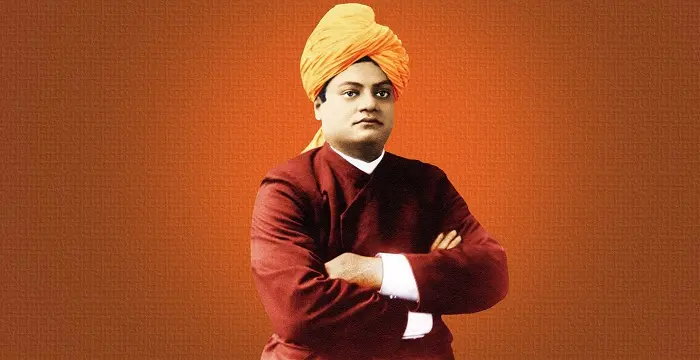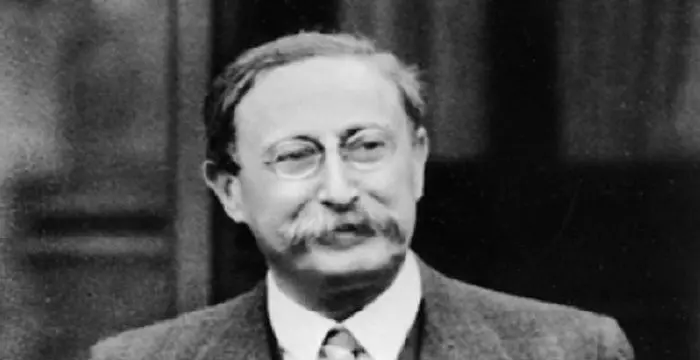
Léon Blum - Former Prime Minister of France, Birthday and Life
Léon Blum's Personal Details
Léon Blum was a French socialist leader and politician, who served as Prime Minister of France thrice in his career
| Information | Detail |
|---|---|
| Birthday | April 9, 1872 |
| Died on | March 30, 1950 |
| Nationality | French |
| Famous | Socialists, Leaders, Political Leaders, Prime Ministers, Former Prime Minister of France |
| Ideologies | Socialists |
| City/State | Paris |
| Siblings | René Blum |
| Known as | Leon Blum |
| Universities |
|
| Founder / Co-Founder |
|
| Birth Place | Paris |
| Religion | Judaism, Agnosticism |
| Gender | Male |
| Sun Sign | Aries |
| Born in | Paris |
| Famous as | Former Prime Minister of France |
| Died at Age | 77 |
// Famous Former Prime Minister of France
Raymond Barre
Raymond Octave Joseph Barre was French politician and economist. He served as the Prime Minister of France from 1976 until 1981. This biography provides detailed information about his childhood, life, political career, achievements and timeline.
Dominique de Villepin
Dominique Marie François René Galouzeau de Villepinis a French diplomat, politician, and writer who served as the Prime Minister of France during 2005–07. This biography profiles his childhood, life, political career, achievements and timeline.
Léon Blum's photo
Who is Léon Blum?
Léon Blum was a French socialist leader and politician, who served as Prime Minister of France thrice in his career. While serving as the head of the ‘Popular Front’ government, he introduced innovative reforms to improve the economic and social sectors of France. Born into a wealthy Alsatian Jewish family, he completed his primary education from elite schools and went on to earn a degree in law and literature from the prestigious University of Paris. He began his career as a lawyer and pursued his interest as a literary critic. However, the ‘Dreyfus affair’ that occurred in the late 1890s affected him deeply and influenced him to associate himself with socialism. As Prime Minister, he brought about changes like wage increase for labourers by 7-15%, standard 40 working hours per week, paid vacation of twelve days, granting the right to strike and bargain and so on. With the German invasion of France during the World War II he was arrested and imprisoned, only to be rescued by Allied troops later. In his final years, he served as French Ambassador to the U.S and the head of the French mission of UNESCO.
// Famous Socialists
Karl Marx
Karl Marx was a Prussian-German philosopher, revolutionary, historian and socialist whose communist ideologies and works laid the foundation for ‘Marxism’. Explore this biography to learn more about his childhood, life achievements, works & timeline.
Billy Connolly
Billy Connolly is a Scottish actor, musician and stand-up comedian. Check out this biography to know about his childhood, family life, achievements and fun facts about his
Julia Gillard
Julia Gillard is a former Prime Minister of Australia and the first woman to hold the position. To know more about her childhood, career, profile and timeline read on
Childhood & Early Life
Léon Blum was born on 9 April 1872, at Paris, France, to Jewish parents Abraham ‘Auguste’ Blum and Sophie ‘Marie’ Parchenevsky.
He completed his school education from the reputed Lycée Henri-IV School and thereafter studied at the Ecole Normale Superieure at Paris. He dropped out of studies in the middle and took up work on writing an experimental literary review titled ‘La Revue Blanche’.
After its publication, he went on study law at the Sorbonne. He graduated in 1894 with the highest honors. He also made a name for himself as a fabulous literary and dramatic critic.
Career
After his graduation, Léon Blum worked as a government lawyer, along with pursuing the side job of being a literary critic. He did not have keen interest in politics; however, the ‘Dreyfus affair’ of 1894 heavily influenced him..
Dreyfus affair was a political scandal in which a young French artillery officer—Captain Alfred Dreyfus, who was of Alsatian and Jewish descent—was convicted of treason for communicating French military secrets to the German Embassy in Paris. Later on it came to light that he was wrongly framed. The incident divided France.
As part of his efforts to support Alfred Dreyfus, he got acquainted with Jean Jaures, who the leader of the Socialist Party and eventually became part of the SFIO in 1904. In the beginning he wrote for the party’s daily newspaper L’Humanite, but in course of time became the principle theoretician.
With the assassination of Jean Jaures in 1914, he got more involved in leading and managing the SFIO. He got elected into the Chamber of Deputies in 1919 and was appointed as the head of the executive committee of the Socialist Party.
However, the following year witnessed a party crisis and his primary duty involved reconstructing the Socialist Party after its split. The party made a quick comeback under his leadership and he retained his position as head in the 1920s and 1930s. Léon Blum founded a journal titled ‘Le Populaire’.
In 1929, he was appointed as the Deputy for Narbonne. He was re-elected later in the years 1932 and 1936. In 1934, riots in France and the increase in power of German leader Hitler led to changes in the political scene in France. France was facing issues associated with economic recession and decreasing wages at the point.
The election of 1936 was won by the Popular Front, which was an alliance among French Communist Party, the SFIO and the Radical and Socialist Party. The Socialist Party won most number of seats and with this victory Léon Blum became the Prime Minister of France.
Upon assuming office as Prime Minister he took immediate steps to increase worker wages along with prescribing standardized forty hour work weeks and mandatory leave days. Though the wages were increased by approximately 48% in two years, inflation rates steadily rose to about 46%. Industriy had a difficult time adapting to stipulated work hours as well.
Other social reforms that were passed in the parliament in 1936 included compulsory school education up to 14 years, nationalization of the arms and ammunition industry, granting of loans to small and mid-size industries and the establishment of a National Grain Board or ‘Office du blé’ to stabilize prices of agricultural products.
During this period the Germans took up measures to increase their ammunition. To counter this threat Léon Blum took steps to accelerate armament production. This, in turn depleted resources and various social reforms had to be discarded.
With the outbreak of the Spanish Civil War, he chose to be neutral rather than supporting Left-leaning Republicans and thereby refused to send ammunition to Spain. He was skeptical of losing the support of the centrist Radicals and in turn disturbed relations with the Communists. This strain and refusal by the Senate to grant him emergency rule powers led to his resignation in 1937.
Between March and April 1938, he was again Prime Minister of France for a short period. He was not able to build a secure ministry. During his short period as Prime Minister, he lent support to Spanish Republicans by sending military arms and ammunition. He tried to get his proposals and bills approved but the National Assembly rejected them and consequently his ministry ended within a month.
In 1940, the Germans invaded France and even though he escaped into Southern France, he was arrested and imprisoned at Fort du Portalet at Pyrenees. He was among the ‘Vichy 80’, a group of parliamentarians who opposed the granting of complete administrative powers to Marshal Pétain. He was arrested and held until 1942 on charge og treason.
Later he was transferred to German custody and imprisoned till 1945, when he was rescued by Allied troops. He was initially sentenced to execution; however, the local authorities did not heed the orders from their superiors. After World War II, he returned to politics and served as Prime Minister leading a post war transitional government between December 1946 and January 1947.
In 1947, he was appointed the ambassador by the government to negotiate a loan from the U.S for reconstruction of France after the war. Later, he headed the French mission of the UNESCO. He continued writing articles for the journal ‘Le Populaire’ throughout his life.
Major Works
Léon Blum was a socialist politician and three times Prime Minister of France. As part of his duties, he had taken a number of steps to reform the French economy. They include higher wages for labourers, standard working hours of 40 hours a week, compulsory, lending loans to small industries, nationalization of the armament industry.
He also brought about social reforms like compulsory school education up to 14 years and establishment of National Grain House to maintain and keep a check on the prices of agricultural produce.
Personal Life & Legacy:
Léon Blum married thrice in his lifetime. His first married Mary Adèle Julie Amélie Elise "Lise" Blum who died of Leukemia. His then married Thérése Pereyra Blum with whom he had a son named Robert Blum. His third wife was Jeanne Thérèse Blum. All his wives were Jewish women.
On 13 February 1936, he was assaulted by members of ‘Camelots du Roi’, which was the youth wing of Royalist Action French Integralist movement. He was pulled out of his car and almost beaten to death. Following this attack, the group was dissolved by the government.
Following the German occupation of France, his younger brother René Blum, the founder of Ballet de l'Opéra at Monte Carlo was arrested in 1941 and killed a year later.
Léon Blum died of a heart attack on 30 March 1950, at Jouy-en-Josas, in France. He was 77 years old at the time of his death.
// Famous Political Leaders
Edi Rama
Edi Rama is the current Prime Minister of Albania. Check out this biography to know about his childhood, life, achievements, works & timeline.
Khalifa bin Zayed Al Nahyan
Sheikh Khalifa bin Zayed Al Nahyan is the current President of the United Arab Emirates (UAE). Check out this biography to know about his birthday, childhood, family life, achievements and fun facts about him.
Leo Varadkar
Cam Leo Varadkar is the current Taoiseach—the Prime Minister—of the Republic of Ireland. Check out this biography to know about his childhood, family life, achievements and other facts about his life.
Léon Blum biography timelines
- // 9th Apr 1872Léon Blum was born on 9 April 1872, at Paris, France, to Jewish parents Abraham ‘Auguste’ Blum and Sophie ‘Marie’ Parchenevsky.
- // 1894After its publication, he went on study law at the Sorbonne. He graduated in 1894 with the highest honors. He also made a name for himself as a fabulous literary and dramatic critic.
- // 1894After his graduation, Léon Blum worked as a government lawyer, along with pursuing the side job of being a literary critic. He did not have keen interest in politics; however, the ‘Dreyfus affair’ of 1894 heavily influenced him..
- // 1904As part of his efforts to support Alfred Dreyfus, he got acquainted with Jean Jaures, who the leader of the Socialist Party and eventually became part of the SFIO in 1904. In the beginning he wrote for the party’s daily newspaper L’Humanite, but in course of time became the principle theoretician.
- // 1914 To 1919With the assassination of Jean Jaures in 1914, he got more involved in leading and managing the SFIO. He got elected into the Chamber of Deputies in 1919 and was appointed as the head of the executive committee of the Socialist Party.
- // 1936The election of 1936 was won by the Popular Front, which was an alliance among French Communist Party, the SFIO and the Radical and Socialist Party. The Socialist Party won most number of seats and with this victory Léon Blum became the Prime Minister of France.
- // 1936Other social reforms that were passed in the parliament in 1936 included compulsory school education up to 14 years, nationalization of the arms and ammunition industry, granting of loans to small and mid-size industries and the establishment of a National Grain Board or ‘Office du blé’ to stabilize prices of agricultural products.
- // 13th Feb 1936On 13 February 1936, he was assaulted by members of ‘Camelots du Roi’, which was the youth wing of Royalist Action French Integralist movement. He was pulled out of his car and almost beaten to death. Following this attack, the group was dissolved by the government.
- // 1937With the outbreak of the Spanish Civil War, he chose to be neutral rather than supporting Left-leaning Republicans and thereby refused to send ammunition to Spain. He was skeptical of losing the support of the centrist Radicals and in turn disturbed relations with the Communists. This strain and refusal by the Senate to grant him emergency rule powers led to his resignation in 1937.
- // Apr 1938Between March and April 1938, he was again Prime Minister of France for a short period. He was not able to build a secure ministry. During his short period as Prime Minister, he lent support to Spanish Republicans by sending military arms and ammunition. He tried to get his proposals and bills approved but the National Assembly rejected them and consequently his ministry ended within a month.
- // 1940 To 1942In 1940, the Germans invaded France and even though he escaped into Southern France, he was arrested and imprisoned at Fort du Portalet at Pyrenees. He was among the ‘Vichy 80’, a group of parliamentarians who opposed the granting of complete administrative powers to Marshal Pétain. He was arrested and held until 1942 on charge og treason.
- // 1941Following the German occupation of France, his younger brother René Blum, the founder of Ballet de l'Opéra at Monte Carlo was arrested in 1941 and killed a year later.
- // 1947In 1947, he was appointed the ambassador by the government to negotiate a loan from the U.S for reconstruction of France after the war. Later, he headed the French mission of the UNESCO. He continued writing articles for the journal ‘Le Populaire’ throughout his life.
- // 30th Mar 1950Léon Blum died of a heart attack on 30 March 1950, at Jouy-en-Josas, in France. He was 77 years old at the time of his death.
// Famous Leaders
Edi Rama
Edi Rama is the current Prime Minister of Albania. Check out this biography to know about his childhood, life, achievements, works & timeline.
Tecumseh
Tecumseh was a Native American leader of the Shawnee clan. This biography profiles his childhood, life and timeline.
Khalifa bin Zayed Al Nahyan
Sheikh Khalifa bin Zayed Al Nahyan is the current President of the United Arab Emirates (UAE). Check out this biography to know about his birthday, childhood, family life, achievements and fun facts about him.
Anwar Sadat
Anwar Sadat was the third President of Egypt and has been awarded the Nobel Prize for his peace initiatives. To know more about his childhood, career, profile and timeline read on the following biography.
Leo Varadkar
Cam Leo Varadkar is the current Taoiseach—the Prime Minister—of the Republic of Ireland. Check out this biography to know about his childhood, family life, achievements and other facts about his life.
Swami Vivekananda
Swami Vivekananda was the chief disciple of Sri Ramakrishna, and was responsible for awakening India spiritually. Check this biography to know in detail about his life, profile and timeline.
Léon Blum's FAQ
What is Léon Blum birthday?
Léon Blum was born at 1872-04-09
When was Léon Blum died?
Léon Blum was died at 1950-03-30
Where was Léon Blum died?
Léon Blum was died in Jouy-en-Josas
Which age was Léon Blum died?
Léon Blum was died at age 77
Where is Léon Blum's birth place?
Léon Blum was born in Paris
What is Léon Blum nationalities?
Léon Blum's nationalities is French
What is Léon Blum ideologies?
Léon Blum's ideologies is Socialists
Who is Léon Blum siblings?
Léon Blum's siblings is René Blum
What was Léon Blum universities?
Léon Blum studied at École Normale Supérieure
Which company or organization was founded by Léon Blum?
Léon Blum was the founder/co-founder of European Movement International
What is Léon Blum's religion?
Léon Blum's religion is Judaism, Agnosticism
What is Léon Blum's sun sign?
Léon Blum is Aries
How famous is Léon Blum?
Léon Blum is famouse as Former Prime Minister of France
